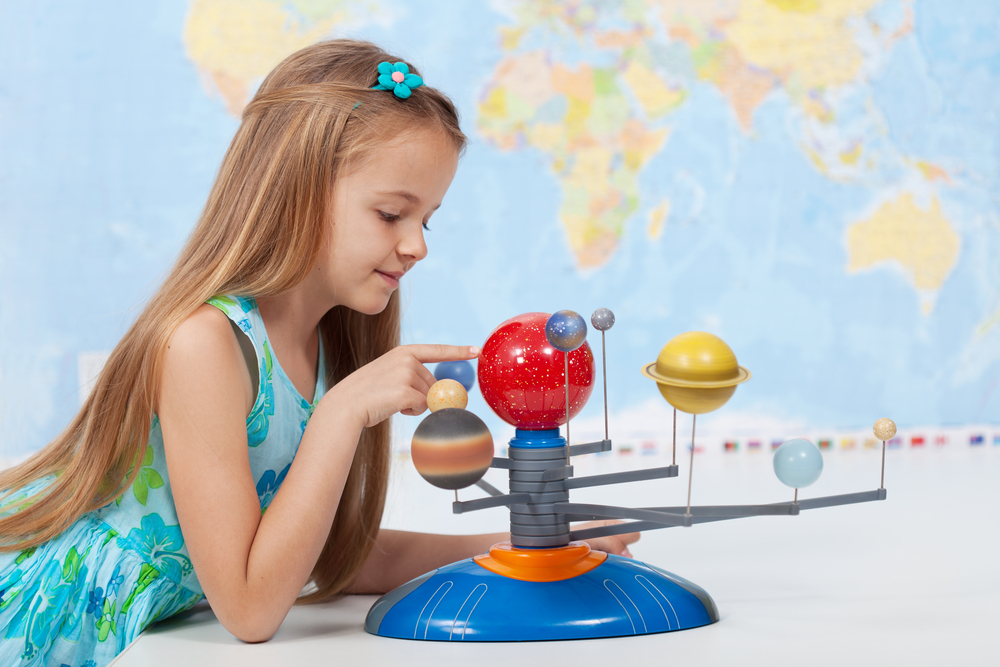Understanding magnetism Normal Science Worksheets for Ages 7-9
4 filtered results
-
From - To
Unlock the mysteries of magnetism with our engaging and educational worksheets designed for children ages 7-9! Created by expert educators, these worksheets from Kids Academy provide a comprehensive introduction to the world of magnets. Children will explore concepts such as magnetic poles, attraction and repulsion, and the difference between magnetic and non-magnetic materials. Interactive activities and hands-on experiments make learning fun and effective, helping kids grasp complex ideas with ease. Perfect for classroom or at-home study, our worksheets foster curiosity and build a strong foundation in science. Discover the wonders of magnetism today!
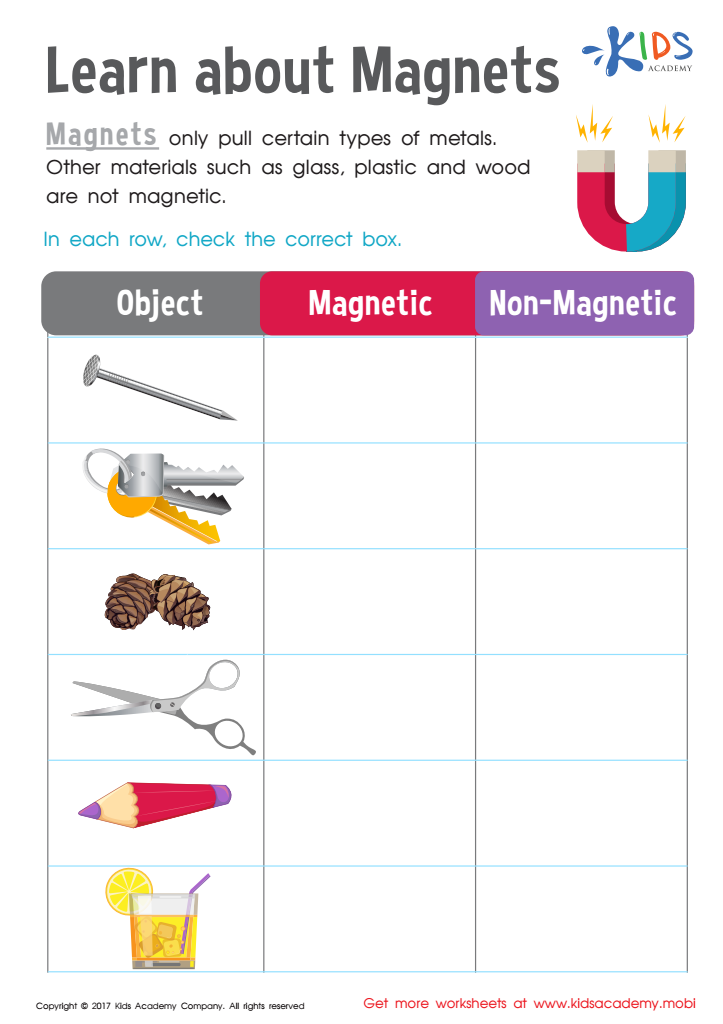

Magnetic Or Not Worksheet
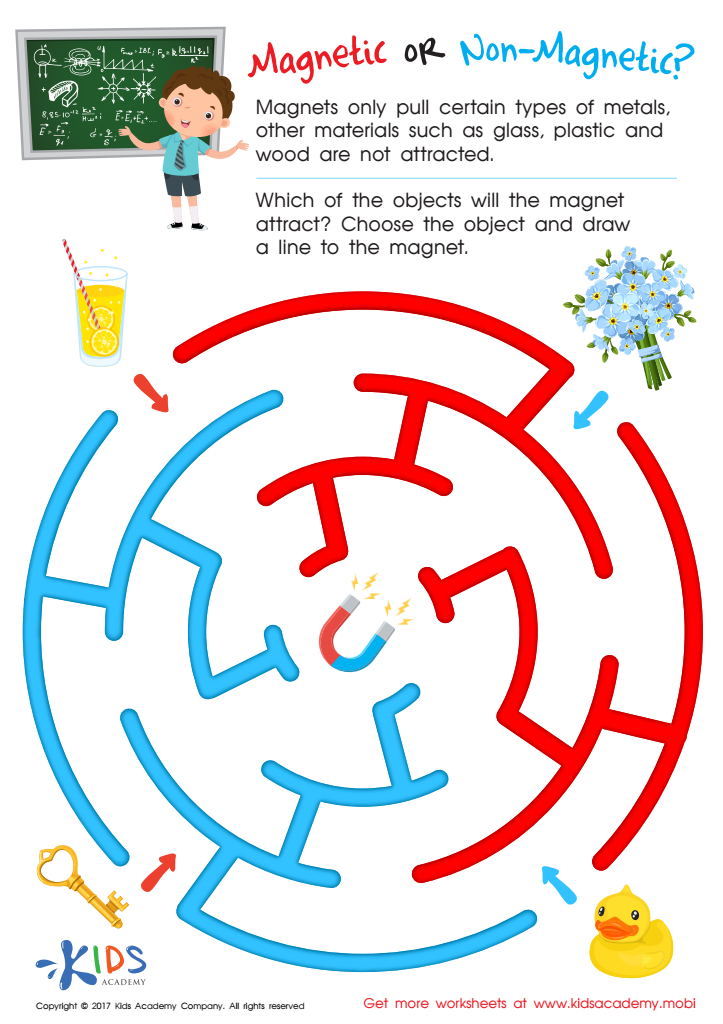

Magnetic or Non–Magnetic Worksheet
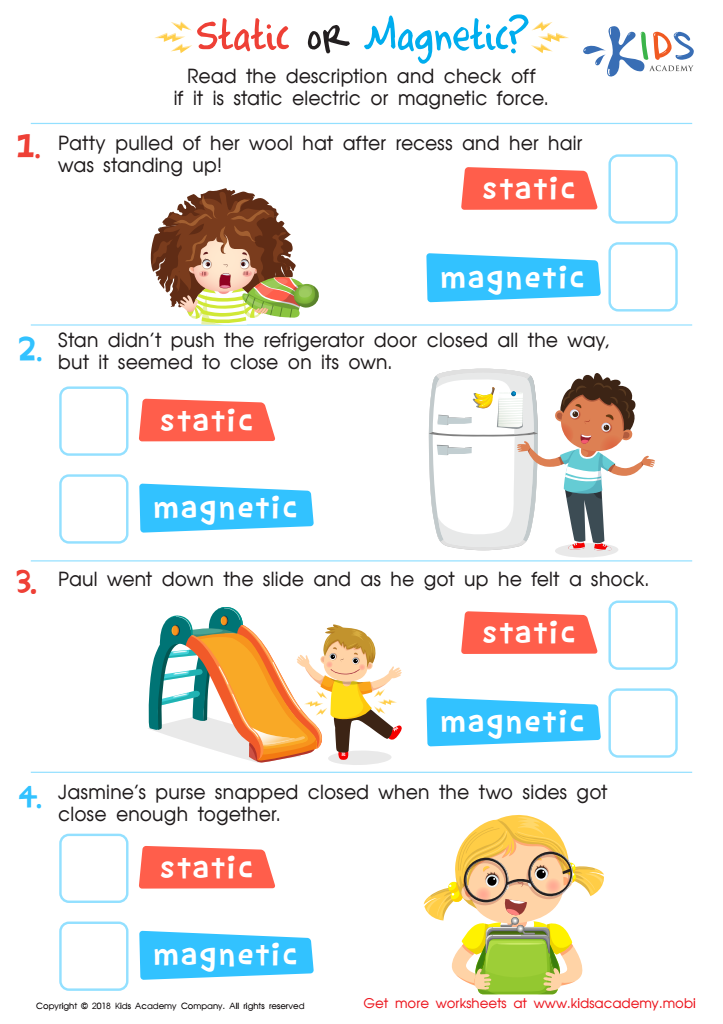

Static or Magnetic Printable Worksheet
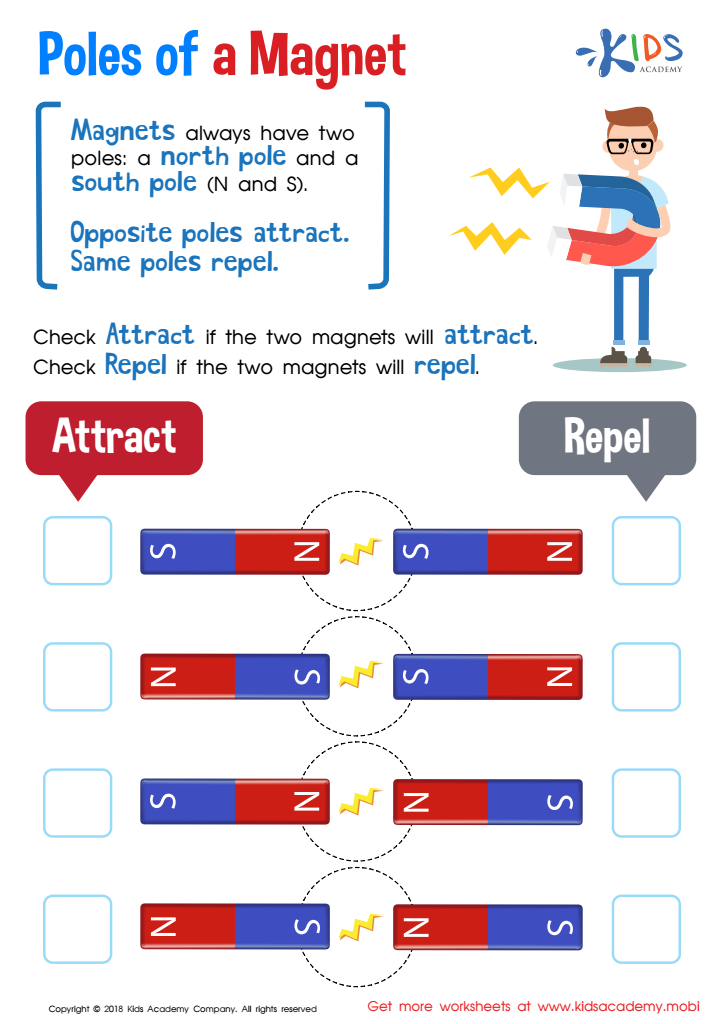

Magnet Poles Attract or Repel Worksheet
Understanding magnetism is a foundation for many scientific and everyday concepts, making it essential for young students. At ages 7-9, kids are naturally curious and their brains are at an optimal stage for grasping fundamental scientific ideas like magnetism. This curiousity should be nurtured with engaging lessons that inspire a lifelong love of science.
Firstly, magnetism is a readily accessible and visible scientific principle. With simple tools like magnets, paper clips, and coins, children can perform hands-on experiments that vividly demonstrate magnetic forces. This tangible interaction fosters critical thinking and problem-solving skills. Kids ask questions like "Why do magnets stick together?" or "Why do they repel?" such curiosity is the cornerstone of scientific inquiry.
Magnetism is also part of the broader curriculum, interconnected with other important subjects such as electricity, physics, and Earth science. Understanding magnets lays the groundwork for future learning, including how compasses work in geography or electric motors in technology. These concepts are key to understanding our technology-driven world.
Moreover, grasping basic scientific concepts like magnetism can boost student confidence in dealing with more complex topics later. By engaging young learners with captivating, age-appropriate lessons, we are equipping them with the tools necessary for academic success and a lifelong appreciation of the critical role science plays in the world.
 Assign to My Students
Assign to My Students



